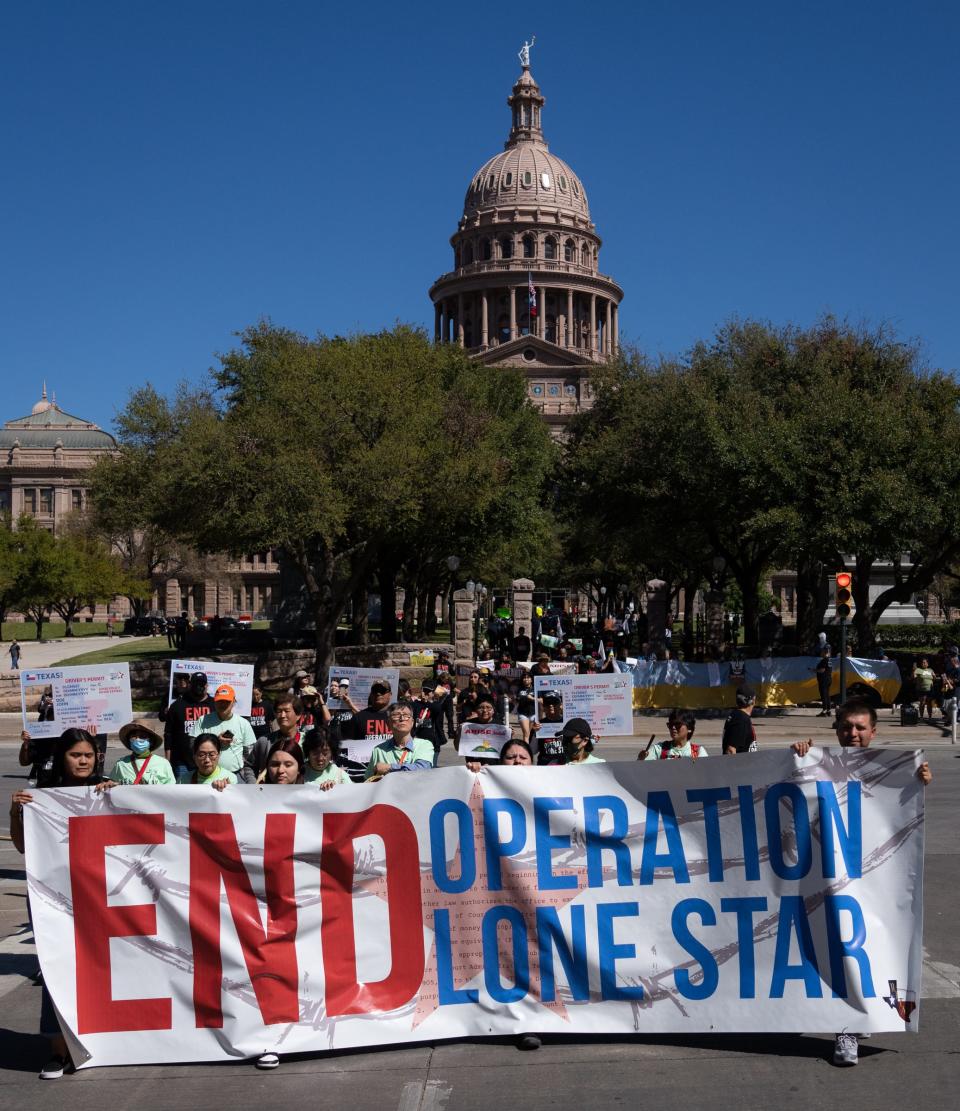Opinion: Operation Lone Star is hurting local communities
The cattle ranch where I grew up in Kinney County is thirty miles from the Texas-Mexico border. My 26-year-old sister runs the ranch while I manage an art gallery in town and work with The Border Organization as a professional organizer, engaging people in Del Rio, Brackettville, Uvalde, and far west Texas.
My sister and I don’t often see eye to eye on political issues, but we agree that the government’s handling of the humanitarian crisis on our border is beyond bad and only getting worse.
Since Gov. Greg Abbott launched Operation Lone Star in 2021, I have witnessed firsthand our local law enforcement’s transformation into a pseudo-ICE agency that neglects other pressing problems in the county. In the past two years, use of meth in Kinney County has skyrocketed. Child and spousal abuse also affect a disturbing portion of households, yet our local law enforcement makes little substantial effort to investigate these homegrown issues. Instead, they are dedicating far too many resources to hunting migrants while the people of my community suffer the consequences of neglect. Exorbitant spending — $4 billion and counting —for Operation Lone Star only fans the flames of this neglect.
I have read far too many headlines in my local paper about high-speed chases ending in the deaths of unnamed people. For what? Many apprehended migrants are accused of nothing more than stepping foot on privately owned land. Good luck taking more than a few steps in rural Texas without committing the same crime.
By what measure can this response be claimed as effective? Texas has spent billions of dollars detaining and arresting potential asylum seekers while illegal entry through Kinney County has not slowed down one bit; plain proof that deterrence strategies do not work and are a huge waste of our already limited resources. I understand that things on the border are bad. What I do not understand is how we expect to solve anything by dumping billions more dollars into programs that fail to solve the problem. Why waste money on a border policing initiative that places even greater strain on border communities and local law enforcement? Why not invest in the humanitarian organizations that help maintain order along the southern border and ensure the safety of both migrants and border citizens?
We could more efficiently address drug smuggling and predatory coyotes if we devoted resources to streamlining legal entry for asylum seekers at bridges, rather than draining our resources to charge them for criminal trespass on private lands. My sister often says that she is in dire need of labor on the ranch, as are many agricultural business owners in this country. We stand to benefit from the influx of people seeking economic opportunity here, but only if we have the proper structures in place to facilitate their integration as valued, contributive citizens. Unfortunately, policies like Title 42, asylum bans, and “Remain in Mexico” erect barriers to legal entry at bridges and incentivize illegal entry through places like Kinney County.
Several bad bills are currently pending in the legislature that would double-down on inhumane and irresponsible border policies. This week, the Texas House State Affairs Committee will consider HB 20, which would recruit civilian volunteers to help "deter and repel" unlawful immigration, make trespassing a third degree felony, and codify Title 42 at the state level. Lawmakers who are serious about mitigating harm on the border and using resources effectively should vote against it.
The method of handling immigration currently employed by the Biden administration, Congress, and the Abbott administration are lethal at worst and lazy at best. No more band aids. No more insane, reactionary policies that escalate violence while undermining meaningful reform. Our federal and state representatives must begin funding proactive and humane solutions to the humanitarian crisis at our border instead of dangerous and ineffective deterrence strategies. We cannot allow career politicians to exploit the chaos and devastation on the border for political leverage or externalize their complacency onto communities like mine.
Most people crossing our border are desperately fleeing unlivable conditions, and we must acknowledge that immigration rates will continue to rise as people are increasingly displaced by climate disaster, economic collapse, and targeted violence in their home countries. We must expand and streamline pathways to citizenship while investing in crucial humanitarian aid organizations maintaining order along the border. Until then, we can expect more people who simply seek safety for themselves and their families to die brutal, preventable deaths.
We cannot idly wait for governments to act on the challenges we face at the southern border. Why do I organize? Because when people engage one another as citizens and neighbors, they begin to develop the power to demand accountability for shared problems. Together we must confront those in power who willfully ignore the majority of people. We must demand investment in the real needs of our communities so that all people may exercise the self-determination that leads to our collective flourishing. Things can only fundamentally change for the better when everyday people stand together and say enough.
Gage Brown is an artist and community organizer in Brackettville.

This article originally appeared on Austin American-Statesman: Punitive border enforcement policies hurt local communities

